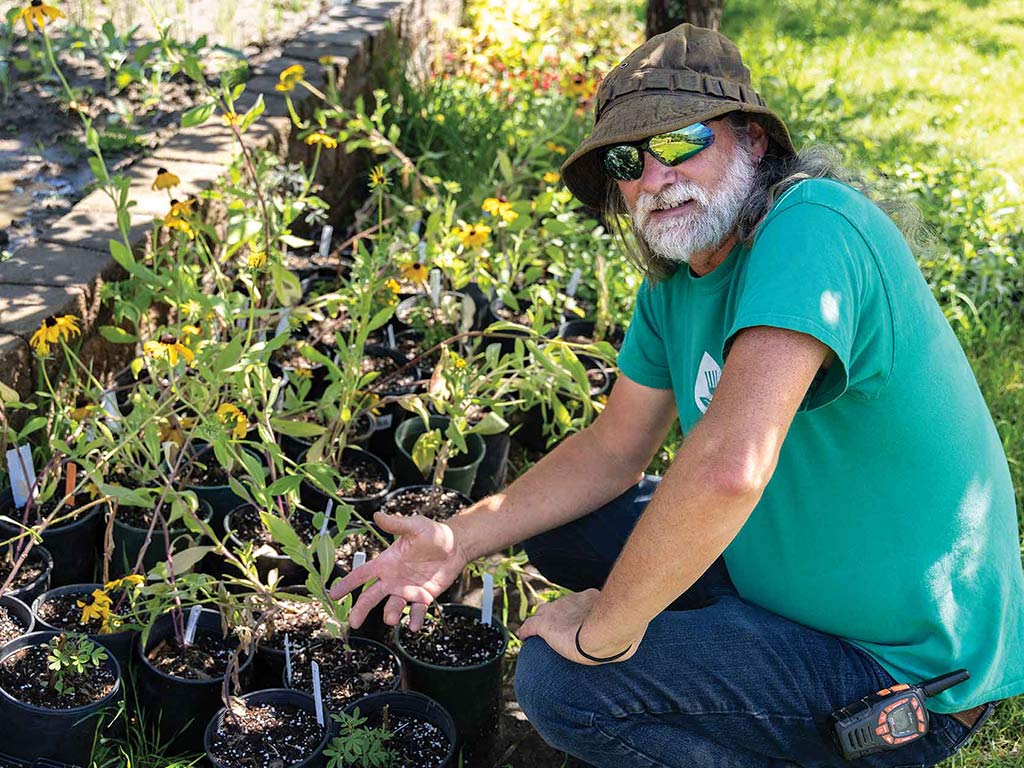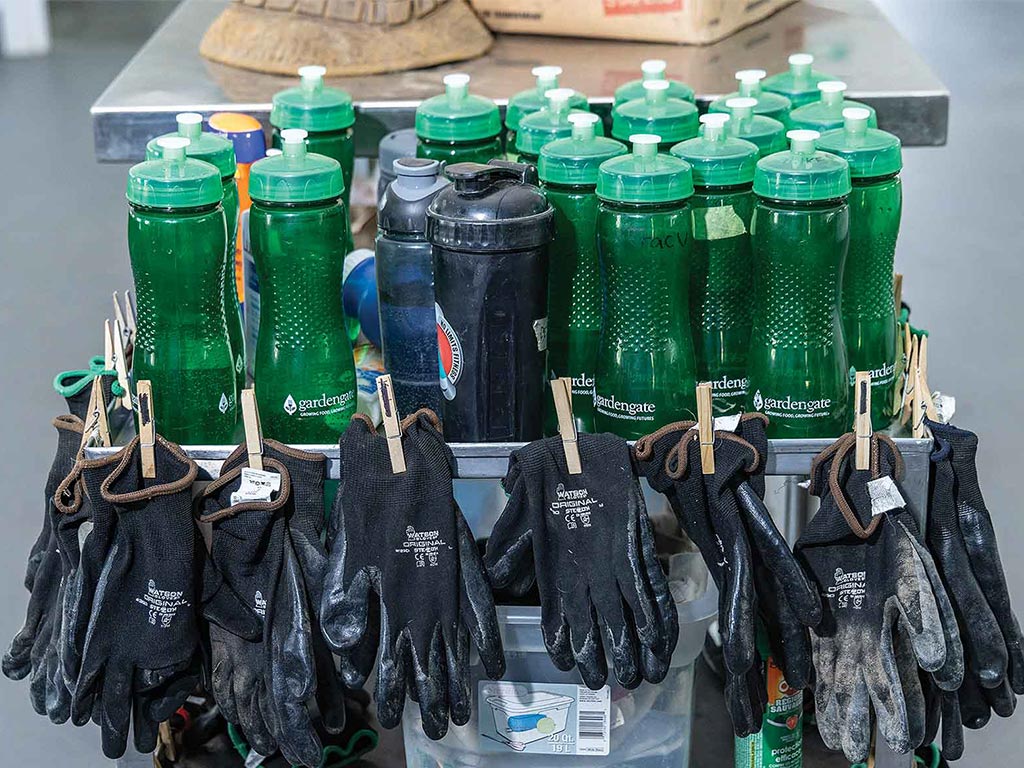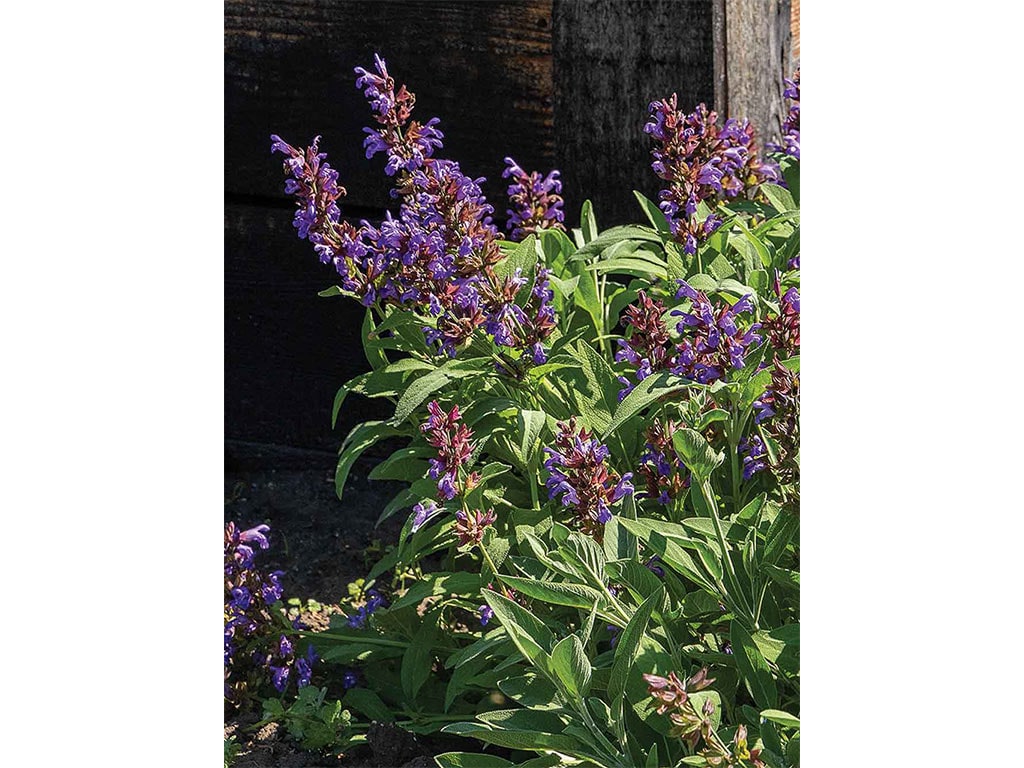Rural Living, Specialty/Niche December 01, 2024
A Helping Hand
Gardeners share their skills with patients in garden therapy program.
by Lorne McClinton
There's something calming about gardening. Perhaps it's the joy of growing food, creating something beautiful, or maybe it's as simple as being outdoors doing something you like. But for Estelle Berube, gardening—and helping others through gardening—became the key to regaining her sense of self.
Berube was working as a disability management coordinator for a company in Kamloops, British Columbia, in 2009 when a head-on car accident changed her life dramatically. She struggled for years with the aftereffects of physical injuries and cognitive changes. Her body healed over time, but her mind required a longer journey toward recovery.
"My brain was not processing as it used to and that was very foreign to me," Berube says. "Whenever I left my house, I experienced severe pain. I realized that if I was going to conquer that, I had to find something I had a passion for to get me out of the house."
She found comfort in gardening. It grounded her and helped still the racing thoughts she was plagued with.
But even as she achieved her Master Gardener's certification, she felt she needed something more to be healthy again. She found the boost she needed through Kamloops' Gardengate Horticulture Program (www.opendoorgroup.org/programs).
"Gardengate is a mental health initiative operated by Open Door Group based in Kamloops, BC. It supports individuals through vocational rehabilitation, life skills development, and pre-employment training on a 2.8-acre urban farm," says program coordinator Robert Wright. "The program, established in 1999, transitioned to a mental health focus in 2005."
Each week a crew of 40 participants and volunteers, some of which are former participants, work side by side in three-hour shifts to cultivate the skills needed to grow food like planting, weeding, harvesting, and equipment maintenance. The program emphasizes individualized approaches that foster self-confidence and self-sufficiency, enhancing the mental health and social well-being of those involved. And they do grow food, anywhere between 18,000 and 29,000 pounds of food annually for the benefit of participants, volunteers, and local food banks.
Above. The program grows between 18,000 and 29,000 pounds of food annually for the benefit of participants, volunteers, and area food banks. Program coordinator Robert Wright says that Gardengate is not a forever program, its purpose is to help participants get to the point where they no longer need the program. Each week a crew of 40 participants and volunteers work side by side in three-hour shifts doing whatever jobs need to be done.
Perfect fit. "I felt right away that Gardengate was a perfect fit for me," Berube says. "First, it got me out of my house. Secondly, it enabled me to interact with others at my pace. Rob and his team have a system that allows participants and volunteers alike to choose what fits for them that day. The environment is so soft, so healing, that my recovery went quickly. The program allowed me to grow again. Plus, it was very empowering to continue as a volunteer and give something back."
Dan, another volunteer, had no gardening experience at all when he first joined the program as a participant. But he quickly came to love doing the variety of chores that need to be done at the farm. He's particularly fond of maintaining the equipment.
"Coming to Gardengate elevated my confidence 100%," Dan says. "And the confidence I got here carried over into my daily life, too. Being here just helped me so much the last three or four years. I learned I can have a bad day and it's just a bad day. We all make mistakes, it's part of being human. How we process them and move forward is the big thing."
"We're not a forever program, our purpose is to support people and get them to the point where they don't need us," Wright says. "Dan [and Estelle] moved into their volunteer roles seamlessly. It's nice to have people on our team who aren't paid staff, who have had that lived experience. They can be peer mentors. Volunteers are really important to us. They develop a different type of relationship with participants than the staff do. They know they are there because they want to help them rather than because they are paid to help them."
"As a volunteer I just work with the various individuals around me, talking and enjoying the tasks that we are presented with," Berube says. "It can take a very long time to gain someone's trust, to have them open up and speak with you, but it does happen. It gives you a warm feeling those days when they do. It doesn't have to be much more than just a small conversation, but at least then the door is open for more." ‡
Read More

AGRICULTURE, SUSTAINABILITY
Farmers Fueling the Future: The Power of Speaking Up
How a late-night conversation changed things.






